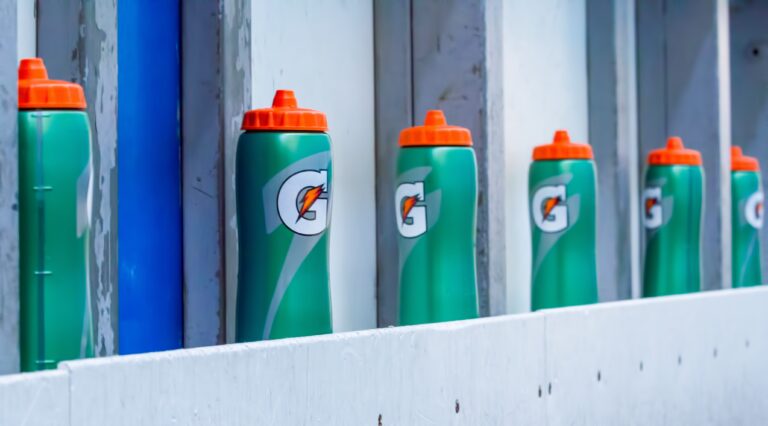Glutamine supplements have been popular on the gym-goer’s circuit for a while. Many people take the amino acid supplement in hopes that it will help increase muscle mass. However, there is actually no evidence that glutamine supplements help with gaining muscle mass.
That’s right, if you are taking a glutamine supplement to help with muscle gains, it’s likely a waste of money.
However, there is evidence that glutamine supplements may be useful for endurance athletes.
The Scoop on Glutamine Supplements for Endurance Athletes:
Glutamine is the most abundant amino acid (a building block of protein) in our body. It’s called a conditionally essential amino acid, meaning that our bodies can easily make glutamine (ie we don’t need to obtain it from our diet), but with exception. In times of high stress (eg. infection, surgery, trauma, AND during heavy exercise), glutamine needs increase and it becomes an essential amino acid (meaning that we need to obtain it from food or supplemental sources).
Glutamine is found in high amounts in meat, egg, and dairy (both whey and casein) protein and therefore, obtaining adequate glutamine through food sources may be a concern if following a vegetarian or vegan diet. The average omnivorous diet contains anywhere from 1-6 grams of glutamine per day.

Glutamine is an important fuel source for the cells lining the intestinal tract. For this reason, glutamine supplementation has been studied in relation to gastrointestinal health, absorption of nutrients, and specifically in reducing symptoms in Crohn’s Disease and Irritable Bowel Syndrome (IBS). The initial studies have been small but there is some research that shows improvement in symptoms when glutamine supplements are taken. More research is needed in this area.
Glutamine also plays an important role in immune function and muscle cells.
This is where glutamine becomes of interest to endurance athletes – such as marathon runners, triathletes, and ultra-marathon runners. When doing long workouts and partaking in heavy training sessions, blood glutamine levels drop, which may play a role in muscle recovery, immune function, and intestinal health.
There isn’t a ton of research in this area, but a few older studies point to improvement in immune function with glutamine supplements. One study was done with 151 endurance athletes and found that taking 5 grams of glutamine after a heavy training session, followed by 5 grams of glutamine 2 hours later reduced the incidence of getting an Upper Respiratory Tract Infection (URTI) quite significantly. Only 19% of athletes in the group taking the glutamine supplement got sick, compared to 51% of athletes in the group taking the placebo.
The best defense to strengthen your immune system is to ensure the diet you consume on a daily basis (especially during your heavy mileage cycles) contains enough calories and nutrient-dense foods; that you are optimizing your recovery nutrition; and that you are getting enough sleep. However, adding a glutamine supplement to your routine to help fight illness and minimize digestive issues may be beneficial.

Bottom line
Glutamine supplements may be helpful if you are an endurance athlete AND:
- Are doing a lot of mileage/high training volume
- During cold and flu season (especially if this coincides with heavy training)
- Experiencing any gastrointestinal issues
- Are following a vegetarian or vegan diet
As always, it is recommended to take a supplement that has been tested and certified by a third party such as NSF certified for Sport or Informed Sport Certified.
Take it one bite at a time,
Cara
References:
Castell, L. M. & Newsholme, E.A. (1998). Glutamine and the effects of exhaustive exercise on the immune response. Canadian Journal of Physiology and Pharmacology, 74: 524-532.
Castell, L.M., Poortmans, J.R. & Newsholme, E.A, (1996). Does glutamine have a role in reducing infections in athletes? European Journal of Applied Physiology, 73 (5): 488-90.
Maughan, R. J., Burke, L., Dvorak, J. et al (2018). IOC consensus statement: Dietary supplements and the high-performance athlete. International Journal of Sport Nutrition and Exercise Metabolism, 28: 104-125.






